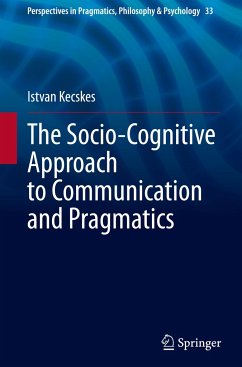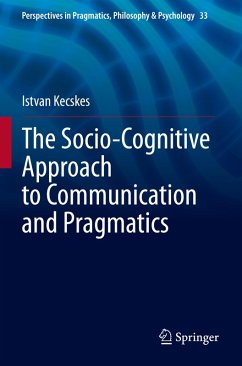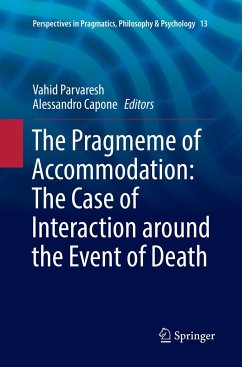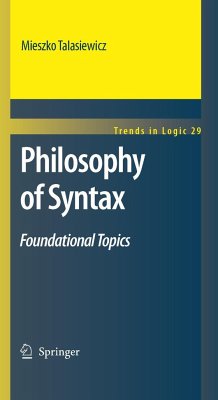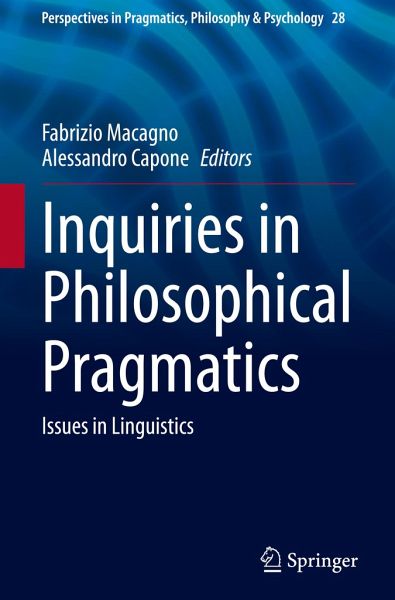
Inquiries in Philosophical Pragmatics
Issues in Linguistics
Herausgegeben: Macagno, Fabrizio; Capone, Alessandro

PAYBACK Punkte
0 °P sammeln!
Together with the first volume "Inquiries in philosophical pragmatics: Theoretical developments," this book collects contributions that represent the state of the art on the interconnection between pragmatics and philosophy. While the first volume presents the philosophical dimension of pragmatics, showing the path from theoretical advances to practical uses and approaches, this second volume offers a specular view on this discipline. Instead of adopting the top-down view of the first volume, this collection of eleven chapters starts from the analysis of linguistic data - which include texts a...
Together with the first volume "Inquiries in philosophical pragmatics: Theoretical developments," this book collects contributions that represent the state of the art on the interconnection between pragmatics and philosophy. While the first volume presents the philosophical dimension of pragmatics, showing the path from theoretical advances to practical uses and approaches, this second volume offers a specular view on this discipline. Instead of adopting the top-down view of the first volume, this collection of eleven chapters starts from the analysis of linguistic data - which include texts and discourses in different languages, different types of dialogues, different types of interactions, and different modes for expressing meaning - looking for the regularities that govern our production and processing. The chapters are ordered according to their relationship with the themes and methods that define the field of pragmatics. The more explored and classical linguisticissuessuch as prototype-based generalizations, scalar implicatures, and temporal ordering, lead gradually to the more recent and debated topic of slurs and pejorative language, and finally to the interdisciplinary and more pioneering works addressing specific context of language use, such as marketplace interactions, courtroom speeches, schizophrenic discourse, literary texts for children, and multimedia communication.
Chapter 12 is available open access under a Creative Commons Attribution 4.0 International License via link.springer.com.
Chapter 12 is available open access under a Creative Commons Attribution 4.0 International License via link.springer.com.






